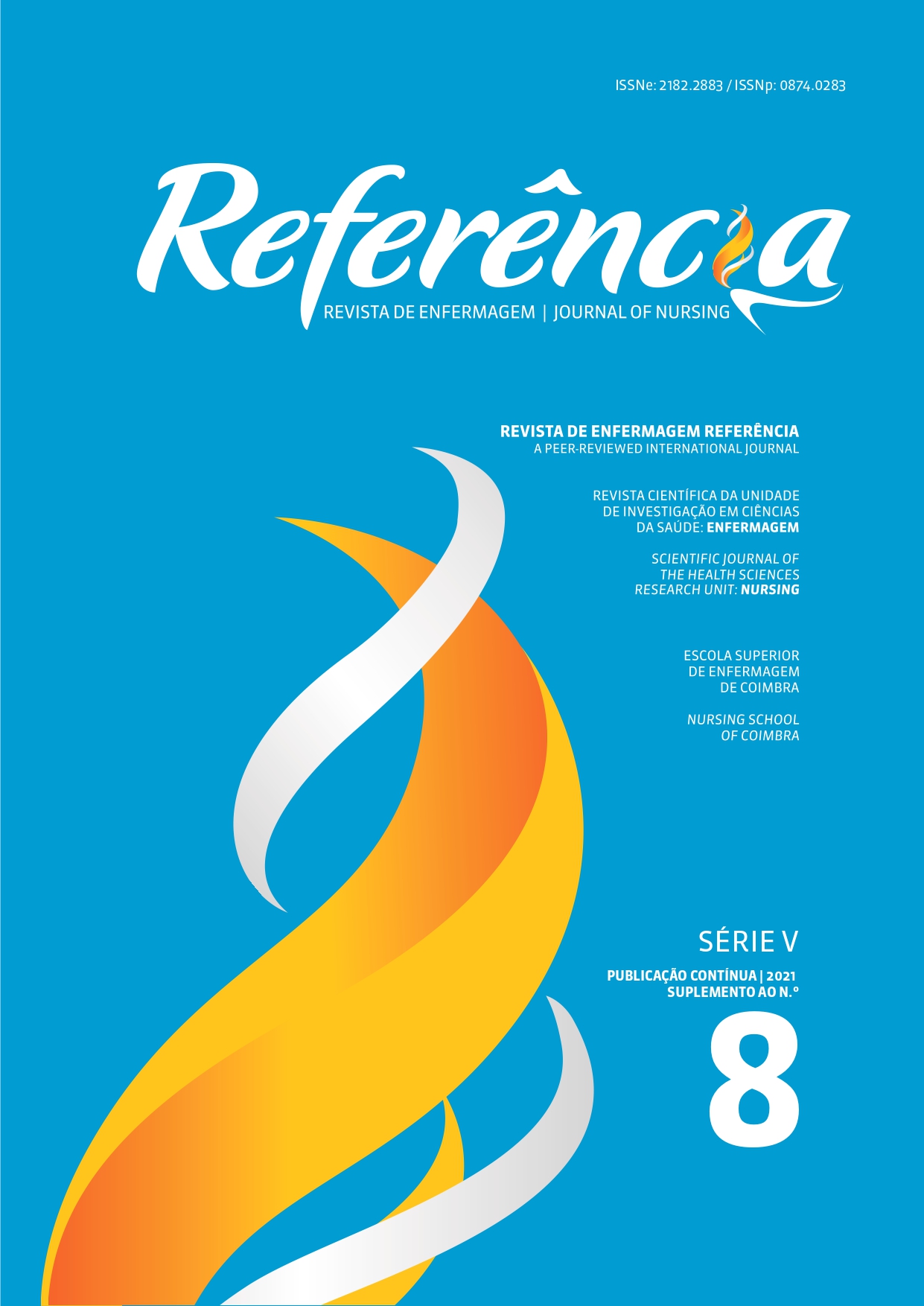Quality of life assessment of women after a post-breast surgery rehabilitation program
DOI:
https://doi.org/10.12707/RV21013Keywords:
quality of life, breast cancer, rehabilitation nursing, rehabilitation programs, breast surgery, axillary lymph node dissectionAbstract
Background: Early breast cancer diagnosis and therapeutic advances have contributed to increasing survivorship, yet little is known about how women’s quality of life (QoL) is affected.
Objective: To evaluate the QoL of women who underwent breast surgery with axillary lymph node dissection after a rehabilitation program was implemented.
Methodology: Quantitative pre- and post-intervention assessment study involving 48 women recruited from a Hospital Center between 2018 and 2019. A three-month rehabilitation program was implemented in the participants’ homes. The instruments used were EORTC-QLQ-C30 and BR23.
Results: After the program implementation, the participants’ QoL improved in functional aspects (role, emotional, cognitive, social, body image, future perspectives) and symptoms (fatigue, pain, insomnia, systemic therapy side effects, and breast and arm symptoms).
Conclusion: This program has positively influenced the participants’ QoL, providing them with the knowledge and skills to take an active and informed part in their motor rehabilitation.
Downloads
References
Al-Gaithy, Z. K., Yaghmoor, B. E., Koumu, M. I., Alshehri, K. A., Saqah, A. A., & Alshehri, H. Z. (2019). Trends of mastectomy and breast-conserving surgery and related factors in female breast cancer patients treated at King Abdulaziz University Hospital, Jeddah, Saudi Arabia, 2009-2017: A retrospective cohort study. Annals of Medicine and Surgery, 41, 47-52. https://doi.org/10.1016/j.amsu.2019.03.012
Albers, L. F., Van Ek, G. F., Krouwel, E. M., Oosterkamp-Borgelink, C. M., Liefers, G. J., Den Ouden, M. E., Den Oudsten, B. L., Krol-Warmerdam, E. E., Guicherit, O. R., Linthorst-Niers, E., Putter, H., Pelger, R. C., & Elzevier, H. W. (2020). Sexual health needs: How do breast cancer patients and their partners want information? Journal of Sex and Marital Therapy, 46(3), 205-226. https://doi.org/10.1080/0092623x.2019.1676853
Cheng, K. K., Lim, Y. T., Koh, Z. M., & Tam, W. W. (2017). Homebased multidimensional survivorship programmes for breast cancer survivors. Cochrane Database of Systematic Reviews, 8, Article no: CD011152. https://doi.org/10.1002/14651858.CD011152.pub2
Direccao-Geral da Saude. (2017). Programa Nacional para as Doenças Oncológicas 2017. Dragun, A. E., Huang, B., Tucker, T. C., & Spanos, W. J. (2012). Increasing mastectomy rates among all age groups for early stage breast cancer: A 10-year study of surgical choice. The Breast Journal, 18(4), 318-325. https://doi.org/10.1111/j.1524-4741.2012.01245.x
European Organisation for Research and Treatment of Cancer. (2001). EORTC QLQ-C30 Scoring manual (3th ed.). https://www.eortc.org/app/uploads/sites/2/2018/02/SCmanual.pdf
Ergun, M., Eyigor, S., Karaca, B., Kisim, A., & Uslu, R. (2013). Effects of exercise on angiogenesis and apoptosis-related molecules, quality of life, fatigue and depression in breast cancer patients. European Journal of Cancer Care, 22(5), 626-637. https://doi.org/10.1111/ecc.12068
Ferlay, J., Colombet, M., Soerjomataram, I., Dyba, T., Randi, G., Bettio, M., Gavin, A., Visser, O., & Bray, F. (2018). Cancer incidence and mortality patterns in Europe: Estimates for 40 countries and 25 major cancers in 2018. European Journal of Cancer, 103, 356-387. https://doi.org/10.1016/j.ejca.2018.07.005
Ferlay, J., Colombet, M., Soerjomataram, I., Mathers, C., Parkin, D. M., Pineros, M., Znaor, A., & Bray, F. (2019). Estimating the global cancer incidence and mortality in 2018: GLOBOCAN sources and methods. International Journal of Cancer, 144(8), 1941-1953. https://doi.org/10.1002/ijc.31937
Forjaz de Lacerda, G., Kelly, S. P., Bastos, J., Castro, C., Mayer, A., Mariotto, A. B., & Anderson, W. F. (2018). Breast cancer in Portugal: Temporal trends and age-specific incidence by geographic regions. Cancer Epidemiology, 54, 12-18. https://doi.org/10.1016/j.canep.2018.03.003
Ghizzani, A., Bruni, S., & Luisi, S. (2018). The sex life of women surviving breast cancer. Gynecological Endocrinology, 34(10), 821-825. https://doi.org/10.1080/09513590.2018.1467401
Hidding, J. T., Beurskens, C. H., van der Wees, P. J., van Laarhoven, H. W., & Nijhuis-van der Sanden, M. W. (2014). Treatment related impairments in arm and shoulder in patients with breast cancer: A systematic review. PloS One, 9(5), e96748. https://doi.org/10.1371/journal.pone.0096748
Lovelace, D. L., McDaniel, L. R., & Golden, D. (2019). Long-term effects of breast cancer surgery, treatment, and survivor care. Journal of Midwifery & Women’s Health, 64(6), 713-724. https://doi.org/10.1111/jmwh.13012
McGuire, K., Santillan, A. A., Kaur, P., Meade, T., Parbhoo, J., Mathias, M., Shamehdi, C., Davis, M., Ramos, D., & Cox, C. E. (2009). Are mastectomies on the rise?: A 13-year trend analysis of the selection of mastectomy versus breast conservation therapy in 5865 patients. Annals of Surgical Oncology, 16(10), 2682-2690. https://doi.org/10.1245/s10434-009-0635-x
Olsson Moller, U., Beck, I., Ryden, L., & Malmstrom, M. (2019). A comprehensive approach to rehabilitation interventions following breast cancer treatment: A systematic review of systematic reviews. BMC Cancer, 19(1), Article number 472. https://doi.org/10.1186/s12885-019-5648-7
Pais-Ribeiro, J., Pinto, C., & Santos, C. (2008). Validation study of the portuguese version of the QLC-C30-V.3. Psicologia, Saúde e Doenças, 9(1), 89-102.
Paolucci, T., Bernetti, A., Bai, A. V., Segatori, L., Monti, M., Maggi, G., Ippolitoni, G., Tinelli, L., Santilli, V., Paoloni, M., Agostini, F., & Mangone, M. (2021). The sequelae of mastectomy and quadrantectomy with respect to the reaching movement in breast cancer survivors: Evidence for an integrated rehabilitation protocol during oncological care. Support Care Cancer, 29(2), 899-908. https://doi.org/10.1007/s00520-020-05567-x
The Global Cancer Observatory. (2021). Cancer today: Population fact sheets: Portugal. https://gco.iarc.fr/today/data/factsheets/populations/620-portugal-fact-sheets.pdf
The Global Cancer Observatory. (2020). Estimated number of new cases from 2020 to 2040, Incidence, Females, age [0-85+]: Breast. https://gco.iarc.fr/tomorrow/en/dataviz/tables?mode=population&cancers=20&populations=8_40_56_70_100_112_191_196_203_208_233_246_250_276_300_348_352_372_380_428_440_442_470_498_499_528_578_616_620_642_643_688_703_705_724_752_756_804_807_826&types=0&sexes=2
Zabit, F., & Iyigun, G. (2019). A comparison of physical characteristics, functions and quality of life between breast cancer survivor women who had a mastectomy and healthy women. Journal of Back and Musculoskeletal Rehabilitation, 32(6), 937-945. https://doi.org/10.3233/bmr-181362






















